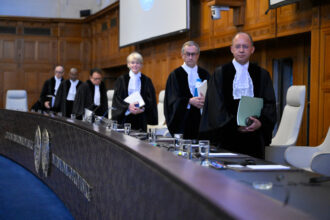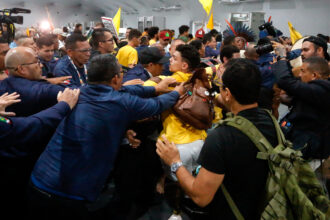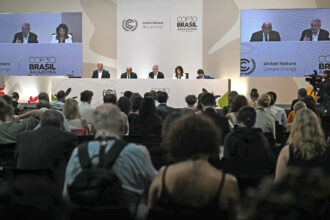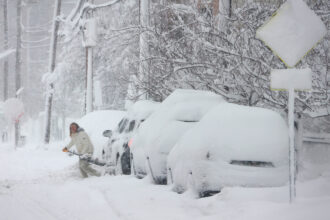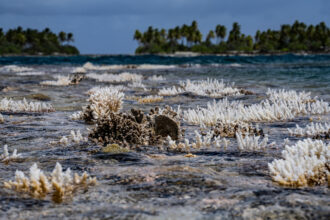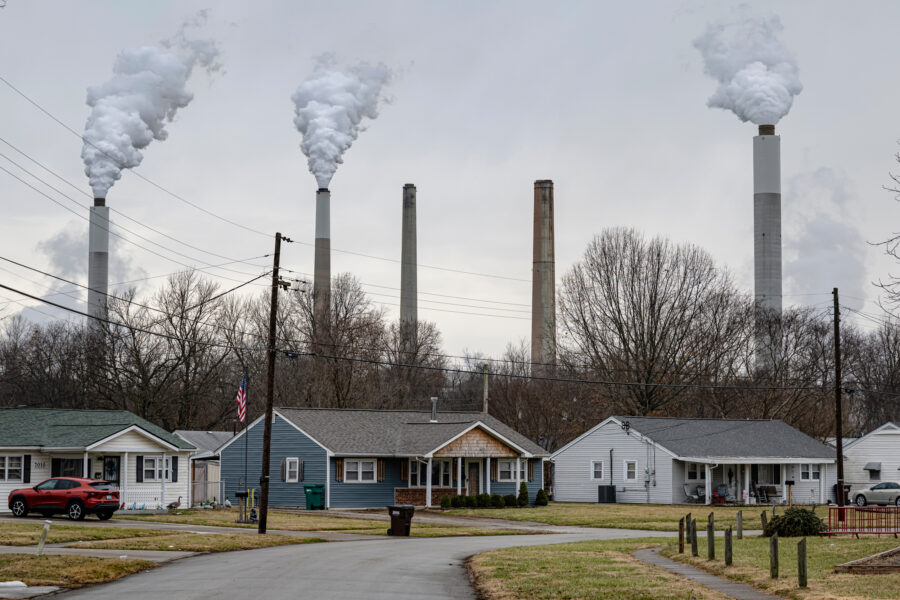BELÉM, Brazil—The United Nations Framework Convention on Climate Change asked the host government to address complaints about stifling indoor conditions, leaky roofs and non-working restrooms at COP30. It also raised concerns about security at the climate talks after demonstrators entered the negotiation area without the required credentials.
“The Secretariat has received multiple reports of extremely high temperatures in several areas of the venue, including meeting rooms, offices, pavilions, and workspaces,” UNFCCC Executive Secretary Simon Stiell wrote in a letter last week to COP30 President Ambassador André Corrêa do Lago and Rui Costa dos Santos, the chief of staff for Brazilian President Luiz Inácio Lula da Silva.
Stiell wrote that there have already been several instances of heat-related health concerns among participants and staff, and that “immediate intervention is urgently required to safeguard the well-being of delegates and personnel, and to maintain essential conference operations.”
Recent research shows that Brazil is suffering from more frequent, intense and lethal heatwaves linked to global warming. A 2025 study from Brazil shows that “heat exposure has been linked to rising rates of violence,” including increases in homicides.
Daily high temperatures in Belém have been around 90 degrees Fahrenheit during the conference, with relative humidity around 80 percent and near-daily rainstorms.
The letter also notes that several delegations have expressed “serious concern regarding the poor condition of the delegation offices provided.” The conditions are below the standards required by the UNFCCC and some facilities, including toilets, “are not fit for use.”
In response, the operators of the venue, consisting primarily of inflatable tents on an old airport runway, cranked up the air conditioning as high as possible, resulting in strong indoor winds and very high noise levels in some areas, making face-to-face conversation difficult. That is a challenge for a conference designed for in-person discussions.
Emerging public health research suggests that poor indoor environmental conditions can reduce cognitive function and cause other impairments. Heat, combined with materials used to build temporary venues, including glue or solvents, can also trigger the release of volatile chemicals known to harm human health.
When combined, those factors can significantly affect complex negotiations and decision-making, said Kerry Kinney, a professor of environmental engineering at the University of Texas at Austin who studies how indoor environments affect human health and performance.
In the same letter, the UNFCCC also asked the hosts to increase security at COP30 after about 150 demonstrators without official credentials forced their way into the venue last week.
Despite strict security provisions in the agreement between the UNFCCC and the host country organizers, demonstrators “proceeded unhindered into the inviolable Blue Zone, under the observation of Brazilian authorities who failed to take action or enforce the agreed security plan,” Stiell wrote. “The security forces and command structure required to execute the security plan were all present on the ground during the incident but failed to act.”
In a meeting following the demonstration, Brazilian federal police officials told the UNFCCC that the state president’s office directed them not to intervene, ”in contravention of the security plan,” and that concerns remain about whether federal and state authorities will act if there is another intrusion.
Stiell’s letter drew immediate criticism from the Human Rights & Climate Change Working Group, a coalition of more than 200 non-governmental organizations. They responded to the UNFCCC this week, charging that the request for increased security would have “negative consequences … on human rights, in particular of Indigenous Peoples, Environmental and Human Rights Defenders, and of those wishing to exercise their right to peaceful protest.”
The UNFCCC, the groups wrote, is contributing “to an increasing global trend towards the silencing of dissent, militarized response to protest, and marginalization of those defending land and the environment, including the Indigenous Peoples of the Brazilian Amazon.”
The subsequent “massive escalation” of security, including constantly circling helicopters, is “creating a chilling effect and a feeling of unsafety for Indigenous Peoples, Environmental and other Human Rights Defenders, civil society, and activists standing up for their rights.”
Suppression of environmental dissent has intensified around the world, leading United Nations human rights experts to warn that the crackdowns threaten democracy.
In 2024, U.N. special rapporteur on environmental defenders Michel Forst argued that states should protect protesters and listen to their demands rather than harass and intimidate people engaged in peaceful acts of civil disobedience.
The letter from the working group also stated that, “Indigenous Peoples defending and demanding legal recognition of their land and their right to self-determination, and protecting our ecosystems and planet, are not a threat. Indigenous women with children demanding access to the negotiations that are determining their future, are not a threat.”
Also responding to the UNFCCC letter, the International Indigenous Peoples Forum on Climate Change posted on Instagram that the request for increased security “is replicating the form of state violence Indigenous Peoples and human rights defenders face across our territories.”
About This Story
Perhaps you noticed: This story, like all the news we publish, is free to read. That’s because Inside Climate News is a 501c3 nonprofit organization. We do not charge a subscription fee, lock our news behind a paywall, or clutter our website with ads. We make our news on climate and the environment freely available to you and anyone who wants it.
That’s not all. We also share our news for free with scores of other media organizations around the country. Many of them can’t afford to do environmental journalism of their own. We’ve built bureaus from coast to coast to report local stories, collaborate with local newsrooms and co-publish articles so that this vital work is shared as widely as possible.
Two of us launched ICN in 2007. Six years later we earned a Pulitzer Prize for National Reporting, and now we run the oldest and largest dedicated climate newsroom in the nation. We tell the story in all its complexity. We hold polluters accountable. We expose environmental injustice. We debunk misinformation. We scrutinize solutions and inspire action.
Donations from readers like you fund every aspect of what we do. If you don’t already, will you support our ongoing work, our reporting on the biggest crisis facing our planet, and help us reach even more readers in more places?
Please take a moment to make a tax-deductible donation. Every one of them makes a difference.
Thank you,







